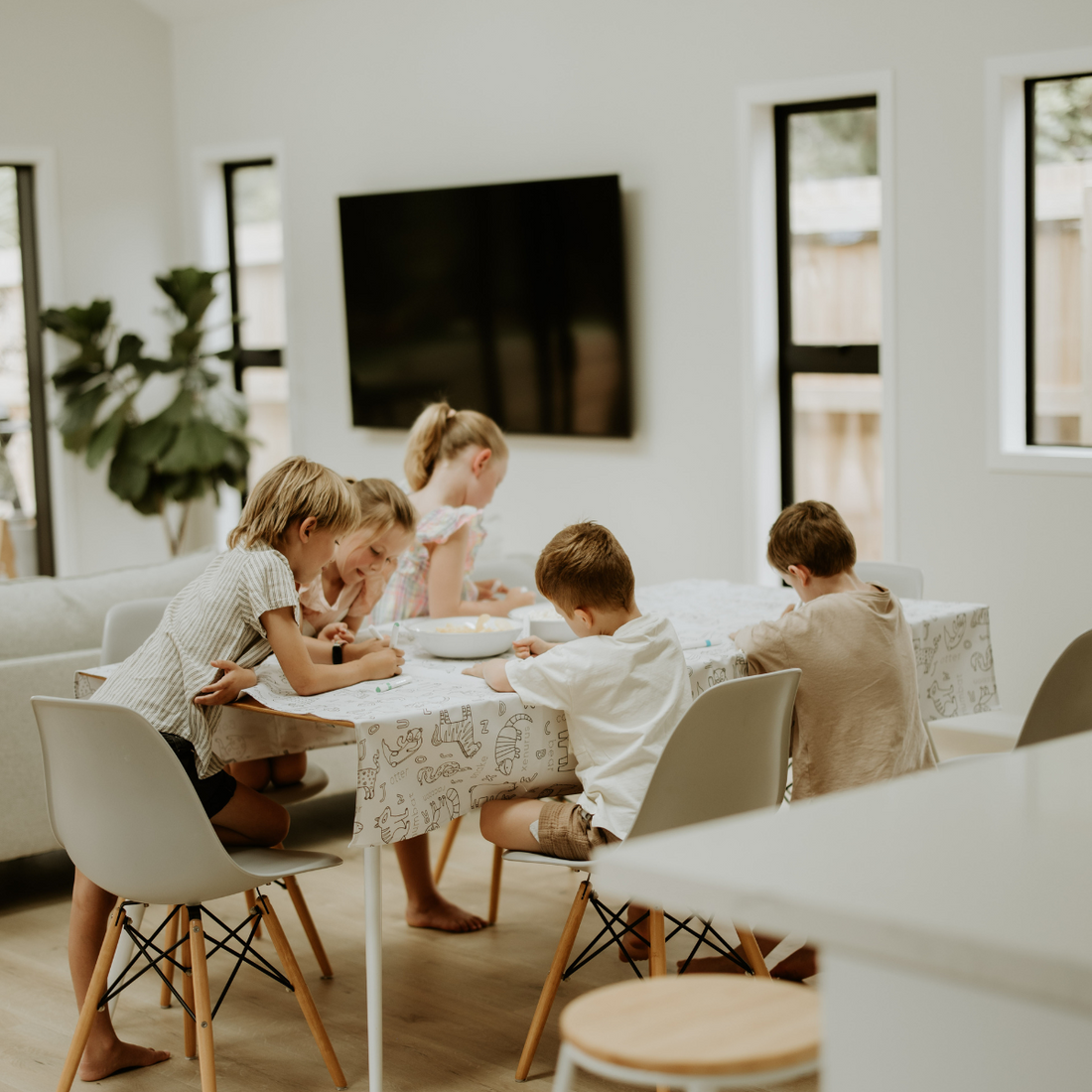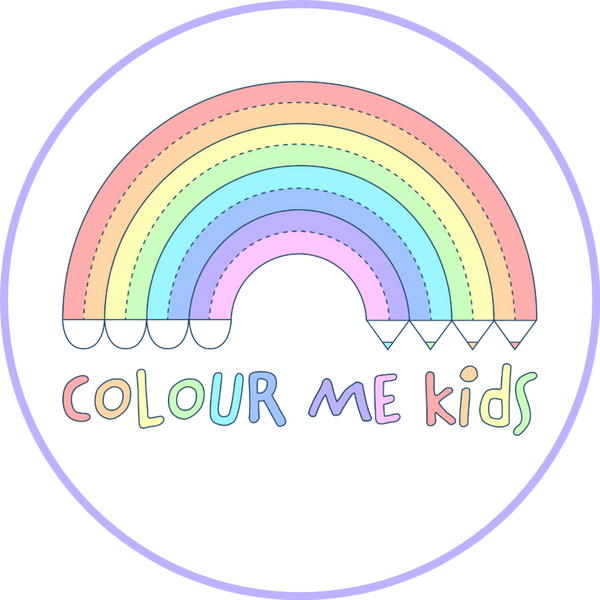
Why Collaborative Play Matters for Kids
Share
Collaborative play is a cornerstone of childhood development, fostering skills that shape children into thoughtful, empathetic, and effective communicators. When children engage in activities that require teamwork, they build essential life skills such as problem-solving, negotiation, and emotional regulation. Products like our colouring in tablecloths are designed with these benefits in mind, offering an opportunity for kids to connect, share, and grow together.
The Building Blocks of Teamwork
Collaboration doesn’t happen in isolation; it’s a skill nurtured through practice. By working together on tasks such as completing a shared puzzle or colouring a placemat, children learn to:
Communicate Effectively: Collaborative activities require children to articulate their ideas and listen to others. This back-and-forth dialogue helps them develop their vocabulary and express their thoughts clearly.
Solve Problems Creatively: When kids face challenges during play, they brainstorm solutions as a team. This nurtures critical thinking and fosters creativity as they navigate obstacles together.
Share Responsibility: Collaborative play teaches kids the importance of sharing roles and responsibilities, helping them understand accountability in group settings.
Respect Differences: Working with others introduces children to diverse perspectives and ways of thinking. This experience helps them build empathy and tolerance, key traits for navigating social situations.
The Role of Collaborative Play in Emotional Development
Collaborative activities don’t just teach practical skills; they also nurture emotional growth. According to research published in the Journal of Applied Developmental Psychology, cooperative play helps children manage emotions like frustration and disappointment, as they must negotiate and compromise with peers (Smith et al., 2021). These experiences allow children to practice self-regulation and develop resilience, both critical for long-term emotional health.
Encouraging Teamwork Through Play
One way to encourage collaborative play is by incorporating activities that naturally foster teamwork. Our colouring in tablecloths are designed for this very purpose. With engaging designs that accommodate multiple participants, these cloths encourage children to:
- Share space and materials, teaching patience and turn-taking.
- Work towards a common goal, such as completing an intricate design.
- Celebrate achievements together, reinforcing the joy of shared success.
These activities create a low-pressure environment where children can practice collaboration in a fun and meaningful way.
The Educational Benefits of Collaboration
Incorporating collaborative play into a child’s routine also has academic benefits. A study published in the Early Childhood Education Journal highlights that teamwork-oriented activities improve problem-solving skills and enhance cognitive development (Jones & Wexler, 2020). When children learn to work together, they’re better equipped to tackle complex tasks and think critically—skills that are invaluable in the classroom and beyond.
Collaborative Play for All Ages
While collaborative play is often associated with younger children, it remains valuable as kids grow older. Activities like group art projects, board games, or even coding challenges continue to teach essential teamwork skills. Our tablecloths are versatile, making them a great choice for family dinners, classroom activities, or playdates, ensuring kids of various ages can join in the fun and reap the benefits of collaboration.
Reducing Screen Time, Increasing Connection
In a world dominated by screens, collaborative play offers a refreshing alternative. By engaging with peers in hands-on activities, children develop real-world social skills that digital interactions can’t replicate. Products like our reusable colouring in tablecloths are eco-friendly and encourage children to step away from devices, fostering creativity and connection in the process.
Collaborative play is more than just a fun pastime; it’s an essential part of growing up. By participating in teamwork-focused activities, children develop vital communication, problem-solving, and emotional skills that set the foundation for future success. Our colouring in tablecloths are designed to support these developmental milestones, making them a valuable addition to any family or educational setting.
As parents, caregivers, and educators, fostering opportunities for collaborative play can help children grow into empathetic, resilient, and capable individuals. By embracing the power of teamwork, we can ensure that the next generation is ready to thrive in a connected and ever-changing world.
References
-
Jones, A., & Wexler, M. (2020). Cooperative Learning Strategies in Early Education. Early Childhood Education Journal, 48(3), 275-284.
-
Smith, R., Brown, T., & Wilson, K. (2021). Emotional Regulation Through Cooperative Play in Childhood. Journal of Applied Developmental Psychology, 74, 101-112.






